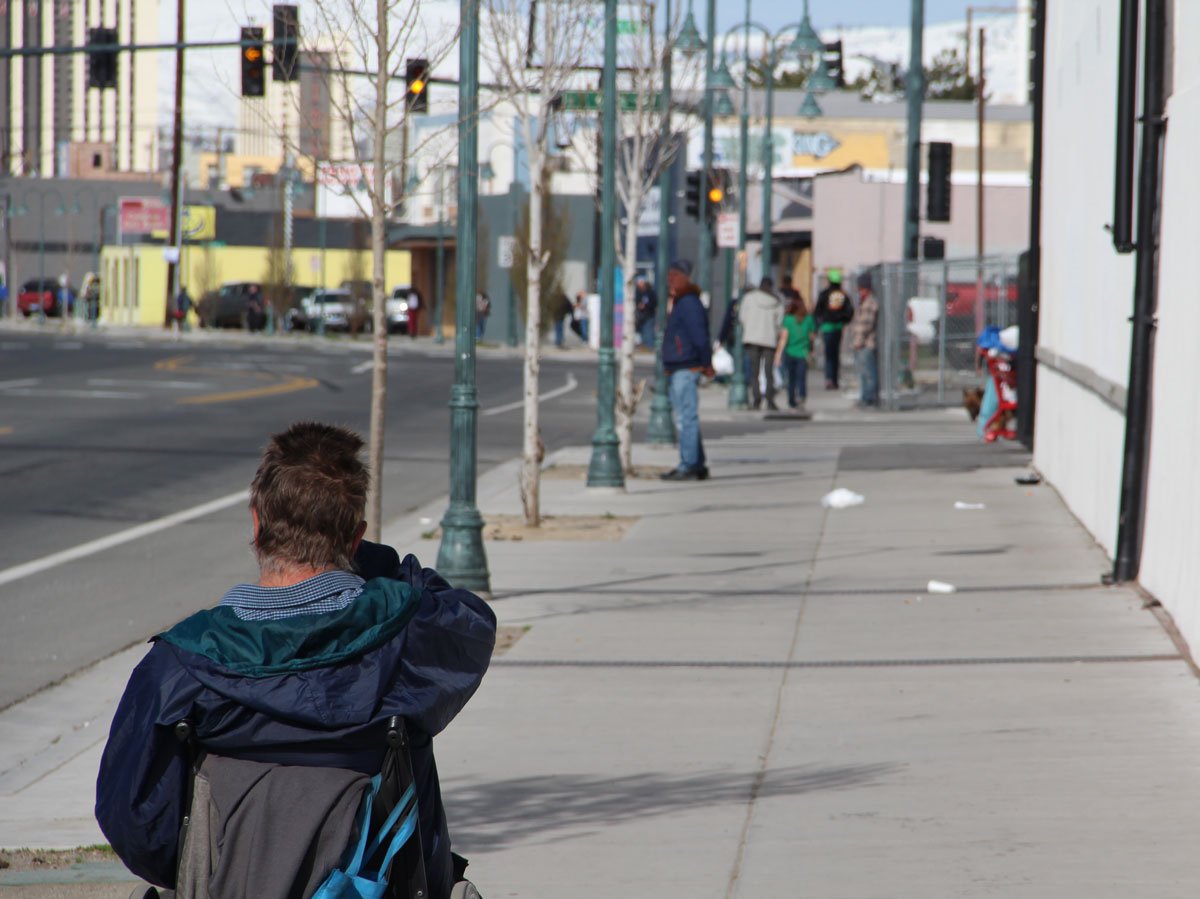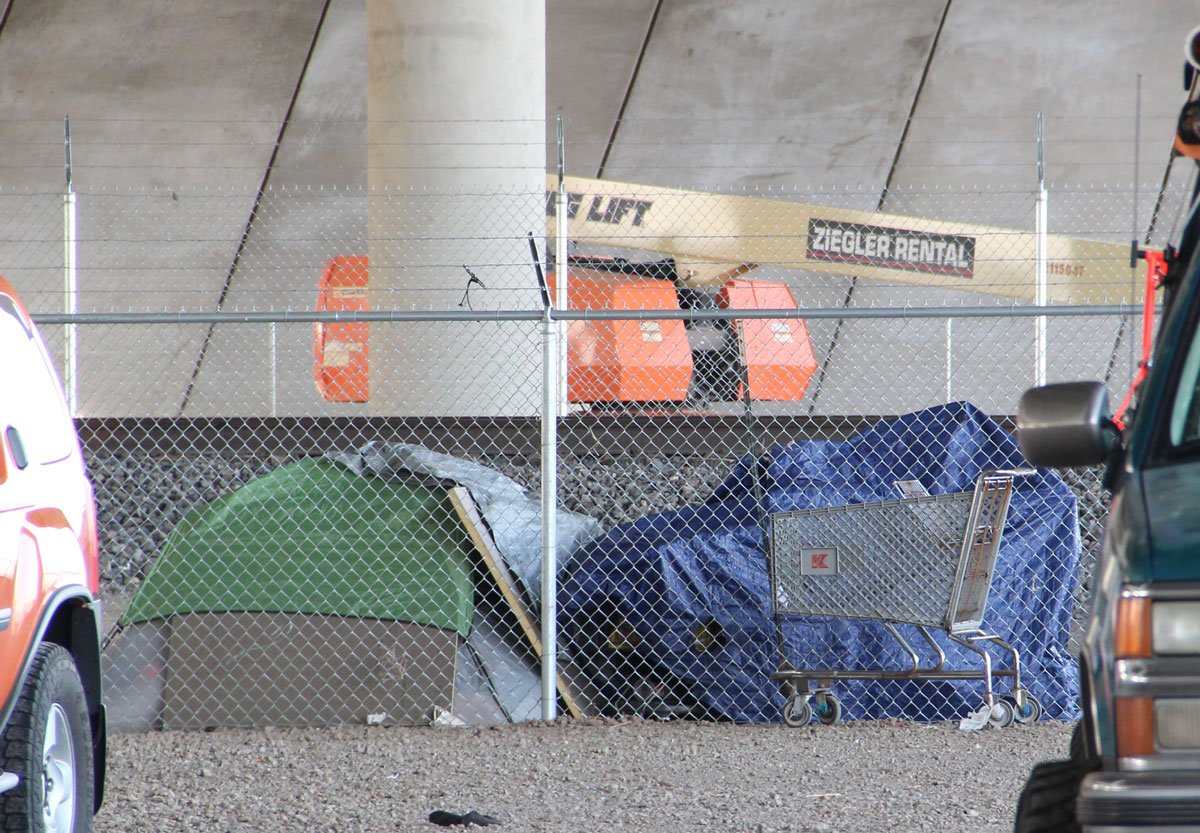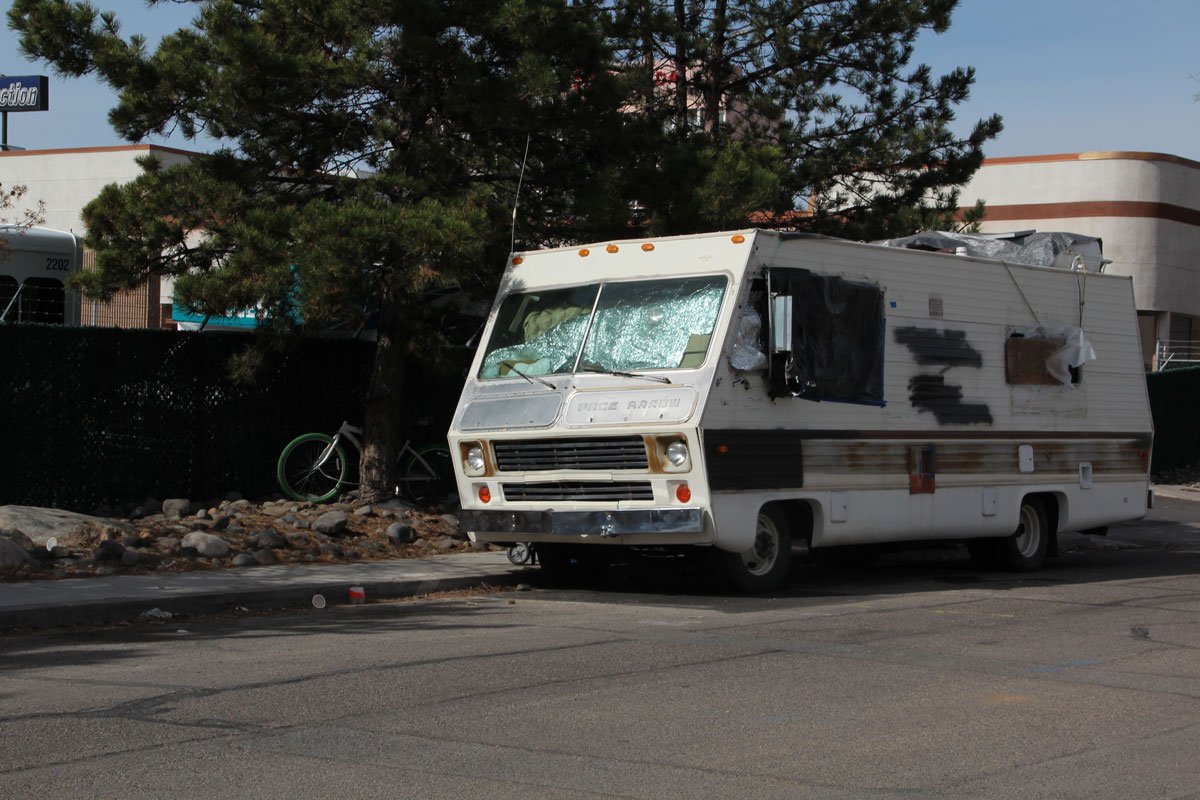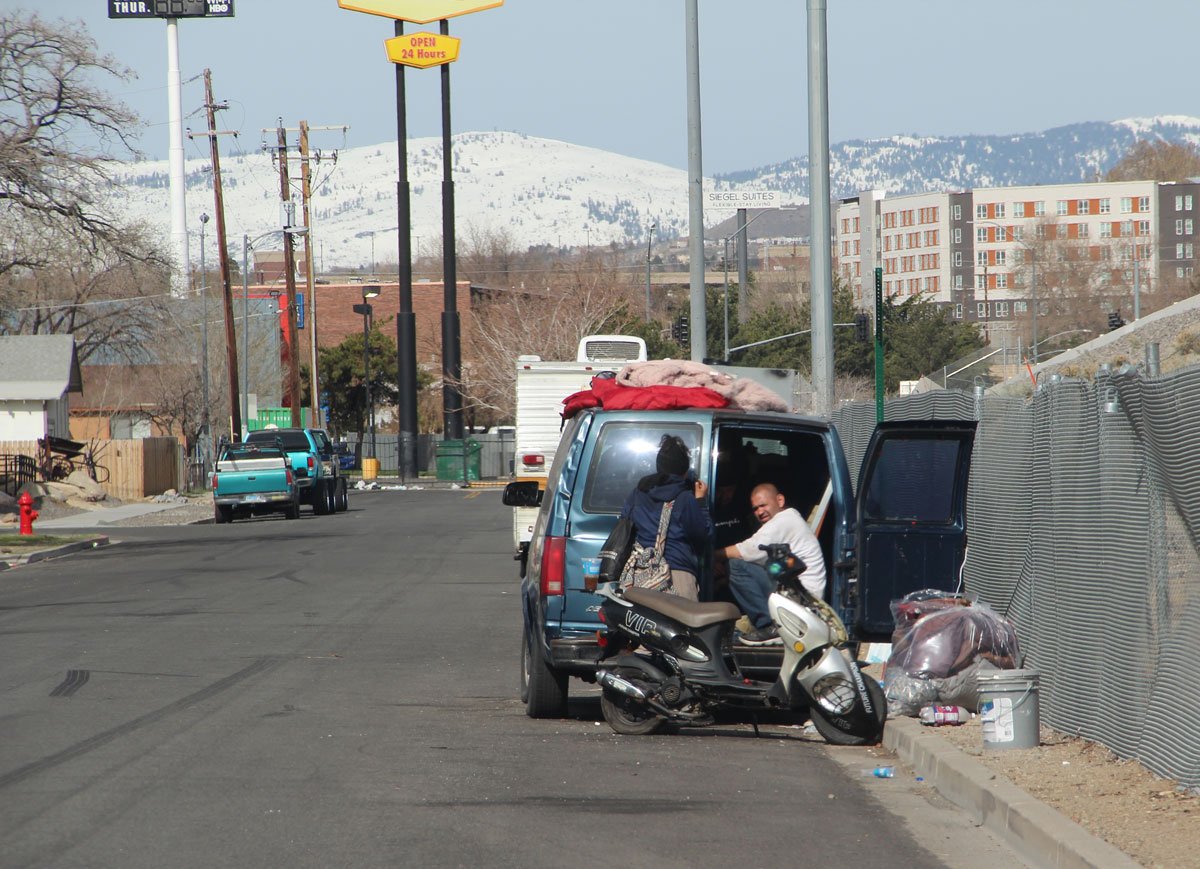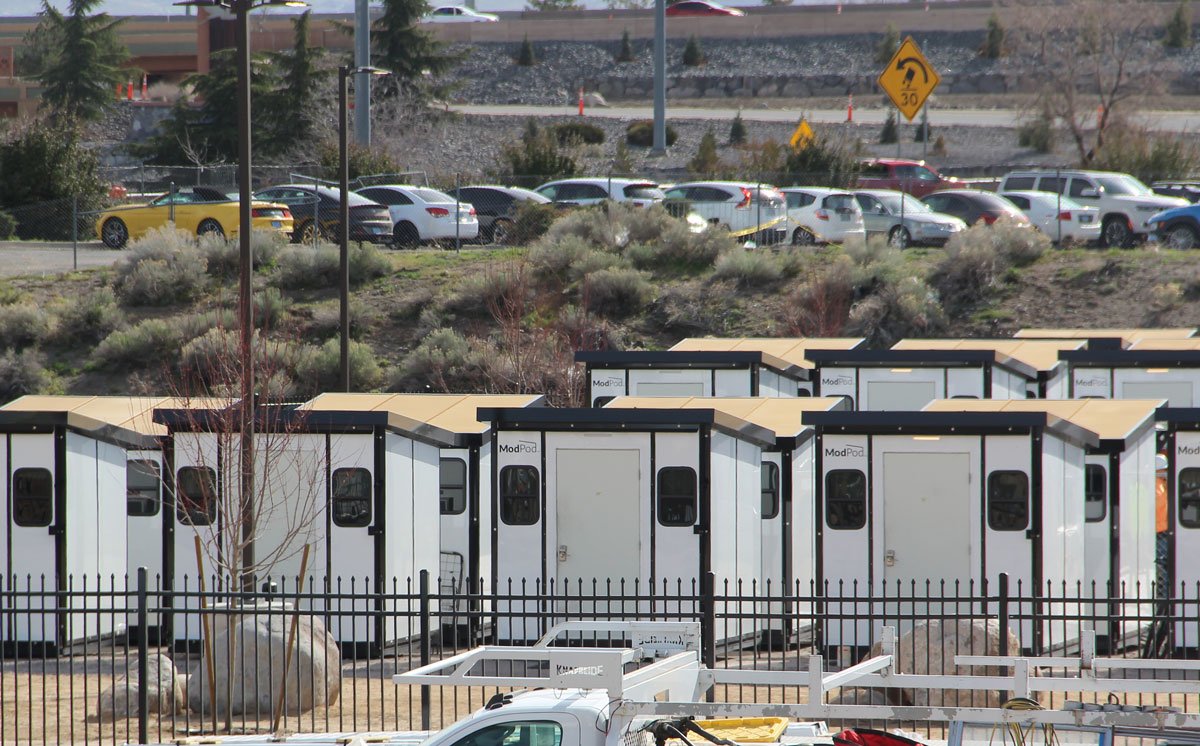Earlier this month, the Reno Gazette Journal ran an op-ed titled “Ending homelessness in Washoe County an audacious goal — but it's starting to work”, written by a local developer named Par Tolles, who is also the Chairman for the Fundraising Committee of the Cares Campus. In his piece, Tolles suggests that the many concerted efforts to end homelessness in Washoe County are yielding promising results.
Promising results for whom?
In his essay, Tolles states that “unsheltered homelessness has been reduced by 42%”, and that on average 30 people per month are moved into permanent housing, but the hyperlink provided sends readers to a general information page on Homelessness from the City of Reno. I was unable to verify those statistics with the information provided on the City Reno and Washoe County websites.
Tolles then challenges the skeptics like me, imploring, “If you don’t believe me, come see for yourself!”
So I did.
On a Monday morning, I took this series of photos to highlight the ways that unhoused people are surviving outside of Cares Campus and the network of outreach organizations. Some might look at these images and think that I was seeking to catalog blight, but that is not what I see in these photos of tents, motorhomes, sleeping bags tucked into nooks and crannies, and shopping carts containing all of someone’s worldly belongings.
I see survival. I see human beings who have been cast aside and left to fend for themselves, languishing on the streets outside the gates of a multi-million dollar, tri-agency money pit, trying to sleep and be safe in the corners and small spaces around the 501c orgs and industrial businesses.
When Tolles talks about the problem of homelessness, he is discussing an economic problem, not a systemic social failure causing untold human suffering and death. In this type of worldview, unhoused people are an impediment to prosperity. Their violent removal presents an opportunity, both in development of formerly blighted areas and in the nonprofit sector.
I think it is very important to say that I believe Mr. Tolles and the many dedicated people he names in his op-ed are making some positive impacts and approach their work with sincere good intentions. I think it is also very realistic to say that you’re not going to get the whole story by only speaking to CEOs and PR people.
Public private partnerships create initiatives and initiatives become action plans and as those plans are implemented, channels and barriers are erected that some of the most distressed and malnourished and neglected people alive must navigate to get food, rest, and basic hygiene.
What is now the ModPod section within the Cares Campus compound run by the Karma Box Project.
Many of the people living on the streets around E. 4th cannot do that, or say they feel safer outside the Cares compound. To me, this looks like a failure of both our economic system and the systems created to help people like them.
Tolles’ editorial checks a lot of familiar boxes in the neoliberal messaging cannon: unrelatable rich friend anecdote, vague statistics without data sources, girl boss energy, incrementalism, the “don’t let perfect be the enemy of the good” classic riff, and some soft corporate speak which frames the violent, dehumanizing police raids to remove the unhoused from downtown as a benevolent measure taken for their safety.
It’s not that Tolles is wrong about the services available, or that homelessness is an incredibly complex issue that requires buy-in from all of us. I am with him on that.
The gated Hope Springs compound touted as one of the local success stories to helping the unhoused.
What I find troubling is the entire top-down approach in which business and government team up to address only the symptoms of the systemic problems they have created. This work generates a lot of PR and goodwill among the donor class, but provides only temporary solutions that help only some people.
I would really love to be wrong in my assessment of these issues and I would love to have my cynicism destroyed by substantive results. It would be fantastic if Reno could be, as Tolles imagines, a shining example for the West in showing that collaborative efforts can secure affordable housing for everyone which greatly increases public safety.
That would require doing things which are not happening here, like building dense affordable housing in walkable areas with services and transportation, rent control, raising minimum wage, and providing physical and mental health services to all.
What we are doing now is warehousing extremely poor people in an industrial part of town and letting them freeze to death on the streets. We have razed the only housing that hundreds of people could afford and turned it into fenced-off empty lots. We have criminalized the basic behaviors of survival for those who don’t have money.
I don’t believe there is cause for celebration yet.

